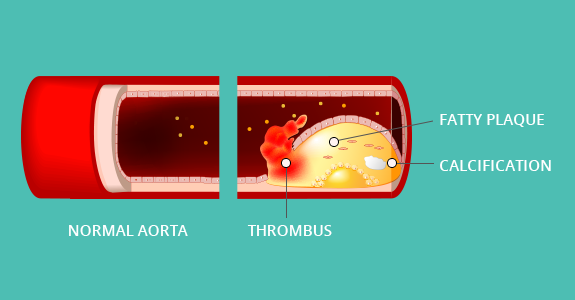Whereas PAD refers to blockage in the arteries of the legs, aortoiliac disease affect the abdominal aorta and iliac arteries in the pelvis. The aorta travels out of the chest and into the abdomen before it splits into the iliac arteries. The right and left iliac artery supply the entire blood flow to their respective legs.
The causes of AIOD are identical to PAD, and in reality, the two are very frequently encountered together. However, because the aorta and iliacs are above, or more proximal to the legs, symptoms are a bit different.
The iliac arteries supply blood flow to the pelvis, the genitals, and large muscle groups in the buttocks, therefore we see symptoms in these areas. Patients will note painful buttock or hip cramping, muscle fatigue, and impotence. This constellation of symptoms, when combined with decreased pulses in the legs, is called, “Leriche Syndrome” (La-reesh syndrome).
Because vascular disease tends to affect multiple areas, we also commonly see the other classic symptoms of PAD.
- Decreased hair growth on the legs and toes
- Paleness of the leg or foot when elevated
- Inability to feel a pulse in the feet
- Blue/red discoloration of the foot when hanging downward
- Coolness of the leg or foot
- A sore on the foot that won’t heal


